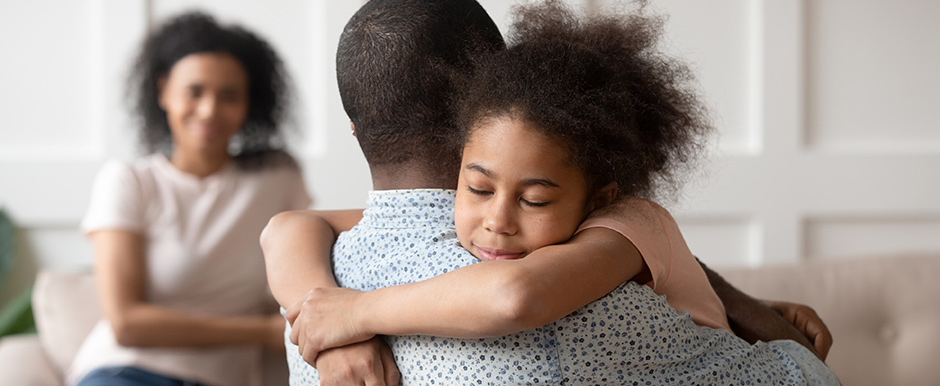As we watch the news unfold, remember that our kids are watching us. Children expect adults in their lives to provide protection and security. When current events are disturbing or worrisome to us, children may pick up on our emotional cues and respond behaviorally. This can look like an increase in challenging behaviors, talking back, withdrawing, or crying more easily. As parents, we may also experience higher levels of anxiety and stress, causing us to be less patient and more reactive.
However, there is also an opportunity embedded in crisis moments. Rather than avoid the news, we can choose to connect and engage with children, in age-appropriate ways, about difficult events and stressful situations. Here are a few strategies for supporting our children and teens during uncertain and turbulent times:
- For Younger Children: Keep your comments appropriate to the age of the child. Young children may only need minimal information upfront. Begin with a short summary, “You may be hearing us talk about what’s going on in the world right now. Some people are upset, and they are protesting. Would you like to talk about this?” Answer any follow-up questions briefly and succinctly. It is okay to tell them you are not sure how current events will resolve. If a child seems emotional, provide hugs and reassurance that you are there for them. If they are not interested, it is not necessary to pursue the conversation. You can always revisit it later.
- For Tweens and Teens: Adolescents are ready for more complex discussions. Invite them to share what they know and how they feel about current events. Then, listen to their thoughts, concerns, and questions. When we listen to our teens, we signal that their opinion and contribution matters. Be curious and encourage reflection by leaving space for them to think and respond, before jumping in with your opinion.
Disruptive times present unique opportunities to talk more explicitly with your family about values. What is integrity in leadership? What is our obligation to the community? How do we demonstrate compassion and respect for those who are different from us? What are the responsibilities of citizenship in a democracy?
As the saying goes, “world peace begins in the home.” Children are reassured when parents address difficult or scary situations openly and honestly. By inviting our children to engage in thoughtful conversations about current events, we nurture their self-esteem, build critical thinking skills, and strengthen family relationships. For guidance or support on your parenting journey, reach out to our experts anytime. We are here for you.
Schedule a parent consultation to learn more.

